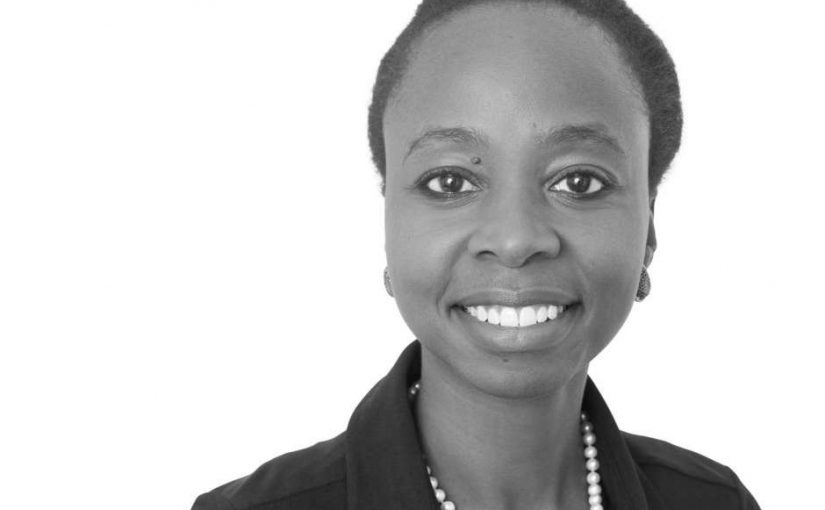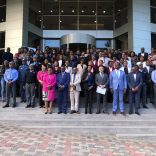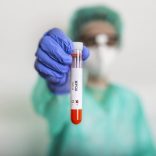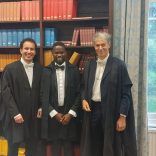Mozambique: Five cases of human trafficking recorded over first semester
Mozambique’s Nélia Mazula wins patent recognition awards from Society of Women Engineers

Mazula, who lives in River Oaks, is a Houston-based innovator, engineer, and digital transformation strategist. This year, the Society of Women Engineers, the world’s largest advocate and catalyst for change for women in engineering and technology, announced Mazula would be the recipient of five Patent Recognition Awards for her software patents focused on augmented reality, big data visualisation, and artificial intelligence. [Photo: Tonya Dailey]
Nelia Mazula wasn’t proud of her patents at first — she didn’t understand the significance that they held.
Now, Mazula hangs her patents on her wall, proud of her accomplishments as an African American woman in the STEM field.
Mazula, who lives in River Oaks, is a Houston-based innovator, engineer and digital transformation strategist. This year, the Society of Women Engineers, the world’s largest advocate for women in engineering and technology, announced Mazula would be the recipient of five Patent Recognition Awards for her software patents that focused on augmented reality, big data visualisation and artificial intelligence.
“I am honoured to represent Houston and receive this award,” said Mazula. “I hope to serve as an example of how an African American woman is positively contributing to the wholesale digital transformation of an established industry like oil and gas.”
The Patent Recognition Awards recognises SWE members who have been awarded a patent within the previous 10 years. Mazula has five patents: Augmented reality updating of 3D CAD models; Laser scan re-engineering of 3D CAD models; Density based graphical mapping; Embedded frequency-based search and 3D graphical data processing; and 3D to 2D re imaging for search.
Mazula’s patents essentially helped digitise engineering in the oil and gas industry, she explained.
“If you go onto Google Maps, you can now see a city in 3D,” said Mazula. “What oil and gas has been trying to figure out for a long time now is, ‘how do we do that with a plant? Or with a rig?’ That’s where my patents come in.”
Mazula’s patents could save oil and gas companies money as they can essentially allow engineers to view rigs virtually, without ever having to go onsite. The patents become even more critical due to the COVID-19 pandemic as working remotely becomes the new normal.
Mazula was born in Mozambique but moved to America when she was young. She got into STEM in high school when one of her teachers recommended her to a STEM camp at a local university, prompting her to major in engineering in college.
After college, Mazula went back to Mozambique and joined a natural gas project, not knowing anything about the industry. The project ended up pointing her career toward the oil and gas industry after she saw the good that the project did for parts of the country.
“Essentially it built the infrastructure. We put in all the sewage, all the piping, we reinforced the roads so trucks can come in and out,” said Mazula. “I never thought something I did could be so impactful and that just gave me a lot of respect for the industry and what it does in terms of transformation.”
Along with many people around the world, Mazula followed the oil and gas industry back to Houston where she is now a software engineer.
“People don’t talk about what we do but there is a lot of technology in Houston,” said Mazula. “I think it’s scary because we’re in COVID and the price of oil is low, but I think it’s a major opportunity for Houston to transition into being a digital hub for the world.”
Mazula’s late brother also spent several years in Third Ward teaching third and fourth graders how to design in 3D CAD. Within a year, the children who had no prior exposure, were designing in 3D CAD. Nelia is working on project to continue his influential work in the Houston community.
By Ryan Nickerson
- The Society of Women Engineers (SWE), founded in 1950, is an international not-for-profit educational and service organisation headquartered in the United States. The Society of Women Engineers is the world’s largest advocate and catalyst for change for women in engineering and technology. SWE has over 40,000 members in nearly 100 professional sections, 300 collegiate sections, and 60 global affiliate groups throughout the world.












Leave a Reply
Be the First to Comment!
You must be logged in to post a comment.
You must be logged in to post a comment.